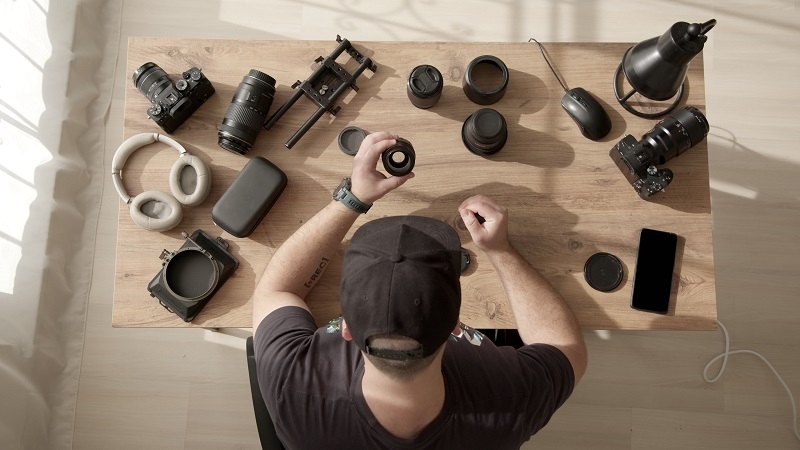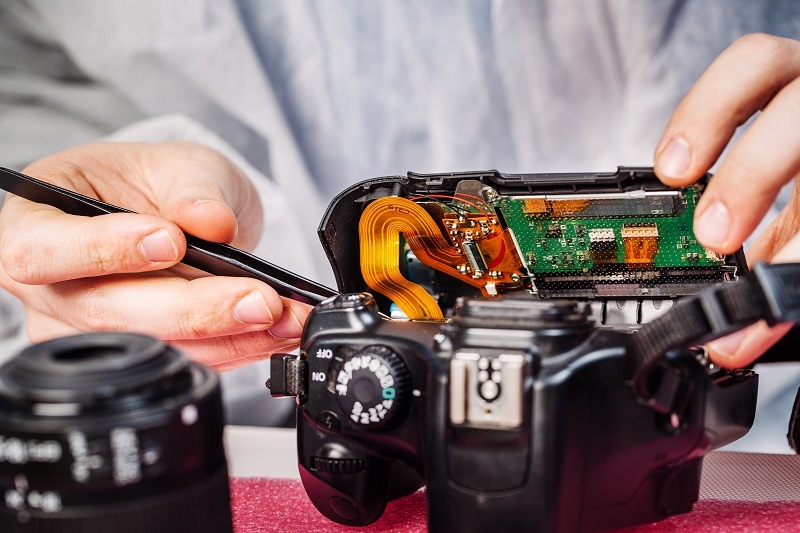
Photography is not a hobby, but an art, freezing moments, and for some of us, a lifelong passion. Amateurs or professionals, photographers that we are, we splurge on cameras and lenses, which are our equipment. But when do we spend money on maintaining them in good working condition? Here comes DIY camera repair – a cheap, clever way of maintaining your kit in good working condition. Photographers are now able to repair their gear without having to necessarily visit a repair shop because of the possession of appropriate tools, knowledge, and experience.
Here, we’ll cover simple, safe, and beginner-friendly maintenance tips to keep your gear in top condition. From how to clean gear at home to safe camera repair hacks and using affordable DIY kits, these tips are designed to extend your camera’s life and save money along the way.
Your camera is a precision instrument. Water, dust, and abusive use can undermine performance, image quality, and even the lifespan of your camera. Although professional service is paramount when it comes to worst-case scenarios, most routine maintenance tasks can simply be done at home for a small budget.
Here are some reasons why you should also do DIY camera maintenance:
With DIY camera repair, amateur and professional photographers alike are able to recover their investment and reduce shooting downtime.
A prerequisite before embarking on the maintenance process is that you have the right tools. On the other hand, you do not have to become broke buying equipment to upkeep your equipment to the best of its capacity. There are a great number of low-cost DIY kits available for exact camera maintenance and cleaning needs.
Here is the tool set you require for effective DIY camera cleaning:
Using these tools will allow you to complete assignments at home without any danger. Spending one dollar on cheap DIY sets only for cameras will give you everything you need in a single set.
Not everyone is a geek, and that is perfectly all right. Novice tricks can help you keep your camera in tip-top working order without breaking it. Some of the beginner-friendly maintenance tips listed below come in handy:
Lenses are handled more than any other component and easily develop fingerprint marks, dust, and grime. Here's how to do it:
By following this, you can keep your lenses in perfect shape. Taking care of proper equipment cleaning at home will save you from costly mistakes.
Sensor dust will ruin your photos with tiny black marks. Proper fix camera tricks for sensor cleaning are:
Sensor cleaning is a chore, but after a while, it's second nature to perform do-it-yourself camera care.
Your body picks up dust, grime, and fingerprint smudges. Regular cleaning can stop long-term wear:
Routine body cleaning is the beginning of extending gear life DIY style.
Power malfunctions result from corrosion or contact grunge. The following is a rapid camera maintenance tip DIY:
Low-maintenance method to prolong gear life, DIY-style, in this small step.

Cameras will occasionally require minute repairs, like stuck button alignments, screws tightened up, or lens mechanism realignment. While serious repairs should always be left to experts, a few safe fixes to do at home include:
These are DIY camera repairs that save trips to the repair shop, but get your equipment operating.
Cleaning equipment at home is not a professional job. With a few easy care guidelines for beginners, safely cleaning lenses and cameras can be done alongside extending gear life DIY style:
These techniques not only optimize performance but also prolong gear life in a DIY style.
Affordable DIY kits are a good investment for DIY beginners. These kits typically include:
Giottos, Altura Photo, and Zeiss are just some of the companies that provide good-quality kits for students. Aside from being easy to clean, safe tips for repairing cameras can also be obtained from the kits without damaging the cameras.
The ultimate DIY long-term goal is extending gear life DIY style. Keeping your lenses and cameras serviced will make them run smoothly and last longer. Follow these steps to make this your routine:
This approach not only saves money on repairs but also ensures that you’re always ready to capture perfect shots.
While DIY camera maintenance is incredibly helpful, there are mistakes that beginners should avoid:
Remembrance of such blunders is required in an attempt to extend equipment lifespan DIY style.
DIY camera repair is an art that must be handled by professional photographers in an attempt to keep their investment intact, guarantee top performance, and spend less on repairs. From repairing equipment at home using inexpensive do-it-yourself equipment and learning safe hacks on how to repair cameras to simplifying equipment and making it user-friendly even for the novice, these are maintenance routines that simplify for newbies. Following newbie maintenance guidelines not only improves everyday photography but also preserves equipment in the long term, in a DIY fashion.
This content was created by AI